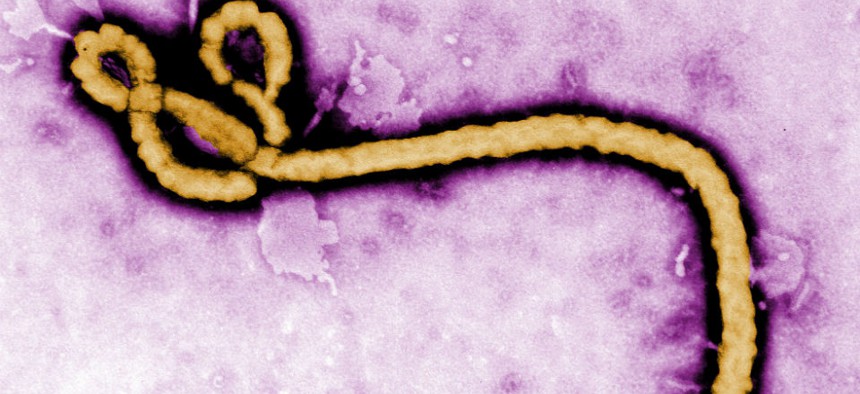
Centers for Disease Control and Prevention
New Texas Ebola Case Fuels Concerns About Care Guidelines
Budget cuts derailed progress on vaccine, NIH chief says.
After a nurse in Dallas tested positive for the Ebola virus on Sunday, officials at the Centers for Disease Control and Prevention are reviewing the steps health care workers take to prevent exposure to the highly deadly virus.
The infected nurse at Texas Health Presbyterian Hospital was part of a team that cared for Thomas Eric Duncan, who died of the disease last week. Officials are now monitoring at least 50 hospital personnel who had contact with Duncan.
The nurse, Nina Pham, apparently had not been considered high risk for contracting the virus. Until she developed symptoms officials had not been monitoring at least some of the hospital workers caring for Duncan, the New York Times reported.
“Officials had previously never made it clear that the 48 people being evaluated did not include those treating him after his admission to the hospital,” the Times noted.
Rep. Bennie Thompson, D-Md., ranking member on the House Homeland Security Committee, said in a statement that the new infection, which CDC attributed to an as-yet-unidentified breach in protocol, “raises the question whether ordinary hospitals that may not have had specialized training on caring for seriously ill patients safely should be responsible for the long-term care of an Ebola patient when there are beds available in one of our nation’s biocontainment units.”
In a briefing with reporters Monday, CDC Director Dr. Thomas Frieden said, “We are doing a detailed investigation to better understand what might have happened with the infection of the health care worker. We look at what happens before people go into isolation, what happens in isolation and what happens when they come out of isolation. And we're particularly concerned with that third process, taking off the isolation personal protective equipment, because if it is contaminated, there's a possibility that a worker will contaminate themselves and become infected in that process.”
“We're concerned and would unfortunately not be surprised if we did see additional cases in the health care workers who also provided care to [Duncan],” Frieden said.
In an interview with the Huffington Post on Friday, Dr. Francis Collins, director of the National Institutes of Health, said NIH has been working on a vaccine to prevent Ebola since 2001, but that funding cuts had greatly slowed that research.
“Frankly, if we had not gone through our 10-year slide in research support, we probably would have had a vaccine in time for this that would’ve gone through clinical trials and would have been ready,” Collins said.







